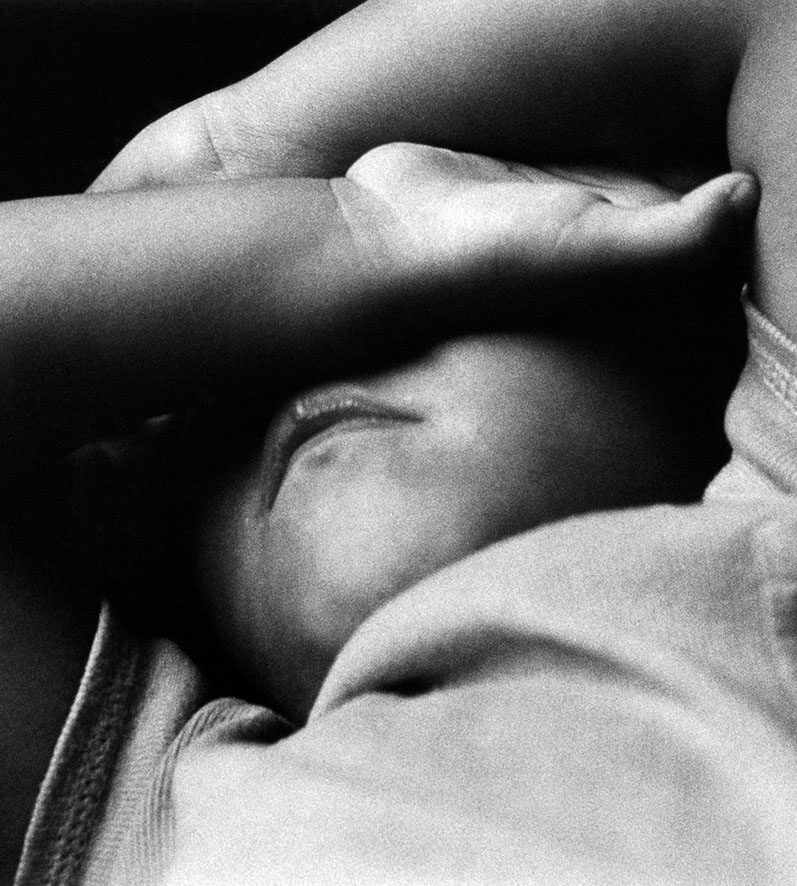At 3am on a Wednesday in February 2021, Dan Williams received a call from the police: there had been a report of domestic violence in the Manchester suburbs. In his role as a social worker, Williams worked the night shift in an emergency child protection team: 5pm to 9am, weekends, bank holidays and every day over the Christmas break.
As he walked through the front door, there was an overpowering smell of excrement. Williams counted 26 dogs and cats, and two children – a baby and an eight-year-old girl – both dirty and distressed, lying among the animals. The police officers arrested the parents, and the children were taken to hospital.
“The dad had thrown alcohol over the mum and hit the baby,” Williams recalled when we spoke by phone earlier this year, before another night shift. “The daughter was just a lovely little kid, still protecting her dad, saying he was ‘doing all right’. She had probably lived in that neglect for a long time.” The baby was put into foster care the same night, while the girl went to stay with her grandmother. “We always rely on the nan,” Williams said, at once grateful and weary.
He is 45 and decided to go into social work after reading about the death of 17-month-old Peter Connelly in 2007, the notorious “Baby P” case. Connelly endured months of abuse from his mother and her boyfriend, in the course of which several opportunities to intervene were missed by doctors and children’s services from the London Borough of Haringey. The same children’s service had missed the abuse that led to the murder of eight-year-old Victoria Climbié by her relatives in 2000.
Williams qualified in 2012, and told me the Manchester case was the worst he could remember. But he told the story not to shock: he wanted to illustrate how a lack of preventative measures had created the circumstances for child neglect. “Even that case would have been fixable,” he said. “If we got in early with a family like this, who were drinking, before they’d become overrun with animals, we could have helped keep them together. You go into a messy house and that can be fixed, with families onside, before it escalates, and you become the ‘bad cops’.”
[See also: I’m a care worker – I’ve had enough of being mistreated and underpaid]
In the recent past, there might have been early interventions by Sure Start, family support workers, health visitors or charities. But when the coalition government came to power in 2010, the then chancellor George Osborne believed cutting public budgets was the key to a post-financial crash recovery. Many of the cuts fell on local authorities, which administer children’s services. Between 2010 and 2018, councils’ central government funding was cut by 50 per cent; meanwhile, their statutory duty to protect children has remained unchanged.
Two years ago, Williams was signed off work for three months. “Probably stress-related,” he said. “It had just become a bit too much, and that happens to quite a lot of people. You can’t face opening a computer. Sorry to swear, but if I feel shit about myself, what can I offer someone else?” Now he meditates daily and trains for triathlons. “Some people in my life argue I do too much training. I disagree.”
Most social workers are not offered occupational counselling, something Williams believed was needed. Whenever people joined his team, he told them they had a responsibility to look after themselves. “You can’t pour from an empty cup. The stuff you have to listen to is something that no one should ever hear, let alone happen to a child.”
[See also: Labour’s landslide in Chester shows voters have an appetite for change]
On 17 June 2020, six-year-old Arthur Labinjo-Hughes died of “an unsurvivable brain injury” after being assaulted by his stepmother, Emma Tustin, with whom he lived. In December 2021, Arthur’s father, Thomas Hughes, and Tustin were convicted of manslaughter and murder respectively. And on 22 September 2020, one-year-old Star Hobson was murdered by her mother’s partner, Savannah Brockhill. Star’s mother, Frankie Smith, was convicted of causing or allowing her daughter’s death. Both Brockhill and Smith were sentenced in December 2021.
Before them, there were the other “never-again” cases: of Daniel Pelka, starved and beaten to death by his mother and her partner in Coventry in 2012; and Khyra Ishaq, who starved to death in 2008 while living with her mother and stepfather in Birmingham. The names of these children resonate in headlines, on anniversaries, as their killers approach parole, and, most bleakly, when a similar case is reported. One child is a victim of murder, manslaughter or infanticide in the UK every week, and the number of children being taken into care is increasing.
A recent study by the University of Liverpool, published in the Lancet, estimated that rising poverty had led to an additional 10,351 children going into care between 2015 and 2020 in England.
Meanwhile, government figures show the overall number of children’s social services referrals, investigations and protection plans has risen every year for the past nine years. The pandemic continues to have an effect: in March a report by England’s children’s commissioner, Rachel de Souza, estimated that 124,000 “ghost children” have disappeared from education since schools reopened.
For the past six months, I have been speaking to social workers across the UK. They told me that the long-term impact of local authority cuts, coupled with lockdowns and rising inflation, had made their jobs significantly harder. In 2021, the number of social workers leaving their jobs in England was up 16 per cent compared with 2020, the highest number in five years. Many were struggling to pay bills.
[See also: Leader: We should never forget Arthur Labinjo-Hughes]
Williams told me he worried about what happened to children when an increasing number of families found there was no money in the house: “people’s stress levels going up, parents drinking or using drugs, getting frustrated, angry and violent”. Increased financial pressures, I was told by numerous social workers, are putting more children in danger – and making it likelier that we will again find ourselves reading about another avoidable death.
On an overcast day in July 2020, Dominic Watters visited a two-bedroom flat in one of the most deprived parts of the southeast. As he approached he saw the battered front door was off its hinges. Once inside he found 14 people living in a space meant for four: three generations of the same family, originally from Bulgaria, including four babies, two toddlers and two teenagers. The gas and electricity had been disconnected. There was no running water, and cockroaches scuttled across the floor. The landlord had served an eviction notice.
Watters, 39, a newly qualified social worker, was on a training stint with a front-line children and families team. The aim of his visit was to help the family fill in a child benefit form; for this alone, he was accompanied by a member of the local housing taskforce, a fellow social worker, two immigration officials and three police officers, in case they needed to take the children into care.
No one in the household spoke English, making the paperwork a challenge. When Watters tried to communicate via Google Translate on his phone, he realised the family could neither read nor write in Bulgarian either. He called a translator and put her on loudspeaker, conscious of the time and expense of the visit. He anticipated questions from senior management about why a seemingly simple task had cost so much.
Watters was also in a vulnerable position himself. When he got home to the council flat he shared with his 16-year-old daughter, he reread the eviction notice on their kitchen counter. The council – the same one he worked for – was seeking possession of his flat, after the Universal Credit system erroneously calculated that he owed six months’ rent. Watters had been warned that he could become homeless any day.
When I met him for a cup of tea in May, he pointed out the oven and sofas donated by a local charity, and the spot on the living room floor that was once exposed asbestos. He told me it had taken 14 years for the council to replace the broken kitchen cabinets he had inherited when he moved here from London. Social workers had become involved in Watters’ life 13 years ago, during a traumatic time he declined to describe: “I didn’t really understand what their job was back then.”
Now, Watters was regularly skipping meals to make sure his daughter could eat and afford her two buses to her grammar school, though he smiled whenever he mentioned her place there. “I’m really proud, and it keeps me going to see how well she’s doing in the world.” Burly and bearded, dressed in a plaid shirt and ripped jeans, Watters was both blokeishly matter-of-fact (he high-fived me when we reached an emotional point in our conversation) and instinctively empathetic. He told me the Bulgarian family had been rehoused, in two houses not far from each other, and the children remained with their parents. He had seen them only once more.
Watters had last used a food bank three weeks earlier – one he had gone to previously in a professional capacity. He felt his own experiences of poverty helped him connect with the families he met. Watters knows how it feels to have a child on free school meals, and the shame that can go with it. He knows what it’s like to live with the tyranny of the electricity key and gas card, and to count the cost of cooking a meal from scratch.
Social workers are not currently trained to spot signs of food insecurity, something Watters argued should be taught as standard. He has taken matters into his own hands, designing a course and delivering it in councils across the north-west of England; when we spoke in November, he had bookings into the new year.
It was a struggle to persuade social workers to speak to me on the record for this article. While the public has become used to hearing from doctors and nurses about the challenges of their work, particularly during the pandemic, social work is less understood. In TV dramas, they are often portrayed as the heartless bureaucrats arriving unannounced to break up families; in the media, they are only reported on when a child is harmed. It is no wonder many who work in the field are wary.
Paul Shuttleworth, a 47-year-old social worker based in Brighton and Hove, told me that “lives are saved every day by children’s services. But we don’t want to say that, because when things go wrong – then it will be, ‘Oh, so you only take credit when things go right?’” As a result, there is less awareness of the rising caseloads, the overtime, the burden of bureaucracy, the battle for funding, the short-staffing, and the emotional strain.
Shuttleworth said that the lockdowns had an incalculable effect: schools are often where the first signs of abuse are detected. “It reduced visibility. Children weren’t going on play-dates with friends, they weren’t out on the street – it reduced the number of people keeping an eye on them. My worry is we’ll be seeing children much later, when their own challenges and difficulties will be worse.”
When I spoke to social workers at the height of the pandemic, social distancing meant they were having to rely on telephone and video consultations. Often, a child’s parents hovered in the background, or the internet connection was poor; in-person visits meant standing on doorsteps and peering through windows. Serious incidents involving infants rose in that first year: between April and October 2020, local authorities in England notified Ofsted of more than 300 serious incidents, 40 per cent of them involving babies – up by more than a fifth on the same period the previous year. More than half of these cases – 64 babies – suffered non-accidental injuries, and eight died as a result.
A recent review into the deaths of Arthur Labinjo-Hughes and Star Hobson noted the context of the pandemic: Labinjo-Hughes was out of school, and Hobson’s health visitor assessments were conducted over the phone.
Two years later, the practice of virtual visits has stuck in some child protection contexts. Tara*, a social worker for 16- to 21-year-olds in London, told me that some young people were now refusing to see social workers in-person. During a recent unannounced home visit, she had found a teenager living with no food and in a flat full of flies. “It feels like we’re getting it wrong,” Tara said. “Because even when they reach my team, which is for teenagers, they’re still not ready for independence.”
[See also: Chinese-owned care home in Rishi Sunak’s constituency is one of 64 in Britain]
The 2019 Conservative Party election manifesto included a pledge to protect vulnerable children. It promised to “review the care system, to make sure that all care placements and settings are providing children and young adults with the support they need”. It also promised to implement “family hubs” (which sound an awful lot like the Sure Start centres previous Tory-led governments had closed down).
Josh MacAlister, the head of Frontline – the government’s social work graduate programme – was charged with this “once-in-a-generation” independent review of children’s social care. He started work in March 2021 and delivered his 278-page report on 23 May 2022.
It was damning. The review described current outcomes for children as “unacceptably poor”, to the extent that growing up in care should be made a protected characteristic (equivalent to race or disability) under the Equality Act. It highlighted spiralling costs: the system costs £10bn a year, but that will rise to more than £15bn within a decade. “A radical reset is now unavoidable,” it concluded.
When I met MacAlister at a café in King’s Cross, London, this summer, he was trying to ascertain what Boris Johnson’s recent resignation meant for his review. Neatly bearded and with a smartwatch on his wrist, he had a meeting in Whitehall later that day, and hoped it wouldn’t be delayed. “It needs to happen,” he said. “If this gets lost in looking at the next financial year, and what the Department for Education (DfE) wants to prioritise, it won’t be ambitious enough. Year after year, it’s becoming more expensive, and the system is crumbling.”
The review called for £2.6bn of extra funding. According to a leaked 2021 contract with the DfE signed by MacAlister, before he began the review, he had been told to assume there would be no additional resources: any money would have to come from savings.
MacAlister’s review was also, in places, iconoclastic. There was a focus on less formal responses to struggling families, such as incentivising relatives and friends – and broader local networks – to rally round them. Robin Sen, a lecturer in social work at the University of Edinburgh, called it a “glib promotion of community”, while Rebekah Pierre, a social worker who had herself been in care, described it as a “middle-class fantasy”.
MacAlister rejected this criticism: he said his vision was “communitarian”. “The problem with a really statist view of this,” he explained, “is that for people on the receiving end of a service, particularly children in care, that service doesn’t feel like love. It doesn’t give them a sense of identity and belonging. That comes about through organic, informal, rich relationships, which services need to be focused on supporting and developing.”
Simply calling for more funding of the status quo was not enough, he said.
MacAlister’s review recommended reducing the number of handovers between services. Instead of the usual chain of referrals, the reform would centre multidisciplinary “family help teams” around children, to catch problems at an earlier stage. A child who has just entered care, MacAlister said, will have been the responsibility of at least six officials: a social worker, that social worker’s manager, an independent reviewing officer, an advocate, a guardian employed by the family court, and a regulation 44 visitor (a monthly independent children’s home inspector).
MacAlister’s review recommended having fewer, more meaningful relationships, with greater power for those professionals. “What happens when you’ve got layers of people is it makes the system feel less responsible,” he said. “Because you’re not on the hook for it: there are three other people involved.”
The social workers I spoke to worried that some of MacAlister’s recommendations might, instead, let the government off the hook – allowing it to reduce headcounts, or to depend on the goodwill of extended families. A spokesman for the British Association of Social Workers told me that the review “needed to be unequivocal in asking the government to act on poverty and the structural underfunding of preventive and universal services”.
Keeping good social workers in post has become increasingly challenging. Marion*, who is 59 and has worked in London local authorities since she qualified in 1985, remembered “legendary retirement parties”, a hired hall full of colleagues, veterans who had worked as part of the same team for 40 years. Now, she said, turnover was high and people were leaving with burnout, sometimes after six months.
Children are the greatest victims of this churn. Tara described one 19-year-old who had 17 care placements around the country, and ten different social workers. “There’s been no consistency,” she said. “As he gets older, he’s struggling to be stable.”
In her own team, which should be staffed by six people, there were only four. The work was exhausting, taking up evenings and weekends. “There’s that spectre of something happening like Baby P or Victoria Climbié,” said Marion. “It’s always present. You’re anxious when you go to sleep. You worry about children when you’re not seeing them. When you are seeing them, you’re worrying if you’ve made the right call. It’s constant anxiety.”
There were also more practical burdens. Tara received daily calls from her teenage charges, asking for help with money; she sometimes takes them for lunch, shopping or little treats – all paid from her own pocket. A 17-year-old had turned up at her office after being discharged from hospital after a suicide attempt. “She hadn’t eaten, and I took her to the café to have breakfast – how can I not feed her?” Yet Tara can’t afford all these expenses on her salary, which is in the low thirties.
There is some hope. A new law implemented in June will increase maximum penalties for child cruelty offences – to up to 14 years imprisonment. Tony’s Law was the result of a campaign led by the adoptive family of Tony Hudgell, an eight-year-old whose legs had to be amputated after he was abused as a baby by his birth parents. Yet only 3 per cent of child cruelty reports lead to a criminal charge.
Meanwhile, social workers are awaiting the response to MacAlister’s review. Will it achieve what past overhauls have not: extra investment and fewer handovers, limiting the chances of fatal miscommunication? And if it is adopted, will it be enough?
When I spoke to MacAlister in early November, he was still awaiting a response. He was about to chair a new children’s social care charity, and said its policy work would feed into government. “The fiscal environment is tougher,” he said, but argued that the threat of more austerity made the case for action even stronger. “Reforming the system is morally right and economically unavoidable.”
Back in Canterbury, Dominic Watters was preparing for a difficult winter. In the summer he had created a mini-food bank on the stairwell of his apartment block. On a windowsill were donated boxes of cream-of-vegetable soup, tins of baked beans and marrowfat peas; a note tucked underneath read, “Please use”.
By November more items were being taken, both by young families and elderly residents. After months of Westminster inaction, the need among the children Watters encountered had become acute. “There is an absolute disconnect between the people designing and delivering services, and the experience of poverty and marginalised families,” he said. “It has to change, and fast.”
*Dan Williams is a pseudonym. Some details in cases have been changed to protect identities. Additional reporting by Elise Johnson
[See also: Michael Marmot: The causes of fuel poverty are all avoidable]
This article appears in the 30 Nov 2022 issue of the New Statesman, World Prince






